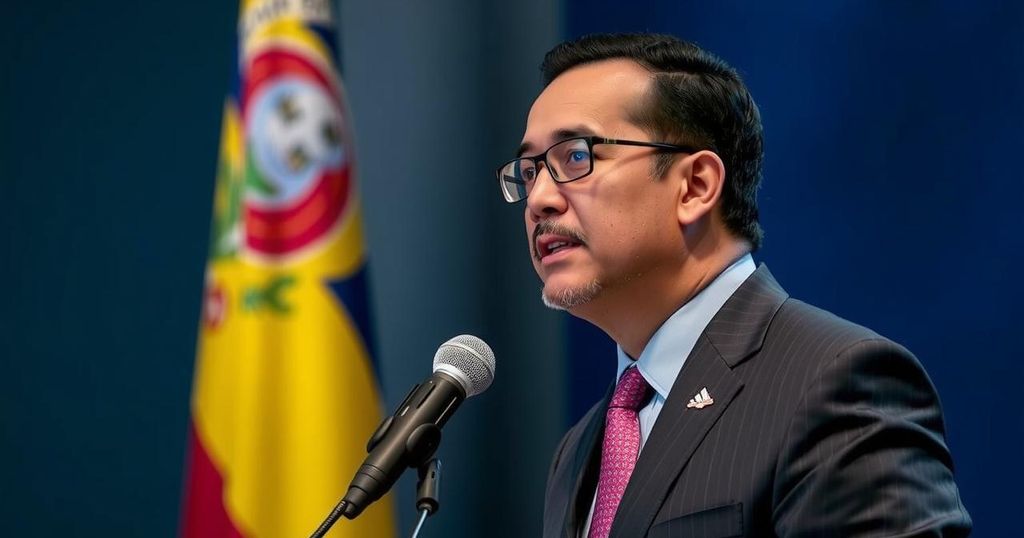Colombia’s Finance Chief Resigns Amid Fiscal Challenges and Corruption Allegations

Colombia’s finance chief, Jose Antonio Bonilla, resigned, causing a decline in dollar bonds and an increase in credit-default swaps. President Petro indicated the resignation was due to loyalty to the government program amidst corruption allegations against Bonilla.
Colombia’s finance chief has resigned during a critical period for the country’s fiscal policies. This departure has had immediate repercussions, as evidenced by a decline in the value of the nation’s dollar bonds and an increase in credit-default swaps, which rose by four basis points to 201. President Gustavo Petro publicly commented on the situation, indicating that he anticipated the resignation of Jose Antonio Bonilla, not due to any alleged wrongdoing, but because of external pressures stemming from his support of the government’s agenda. Bonilla is currently facing allegations of corruption, which complicates the political landscape in Colombia.
The resignation of the finance chief in Colombia comes at a pivotal moment when the government is contemplating significant tax increases to address fiscal challenges. The financial market’s reaction, including the drop in dollar bonds, showcases the sensitivity surrounding political stability and government financial decisions. The context is further complicated by corruption allegations against Bonilla, raising questions about governance and accountability in the current administration.
In summary, the resignation of Colombia’s finance chief poses challenges for the government’s tax reform ambitions and reflects the tensions between political loyalty and public scrutiny amid corruption allegations. As the situation develops, the impacts on the financial market and public trust in government institutions will be substantial, underscoring the delicate balance required in fiscal management and governance.
Original Source: news.bloombergtax.com








